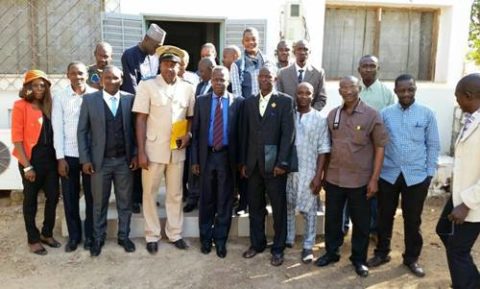In a bid to forster a key partnership in raising awareness of local communities for the preservation of river water, Wetlands International has trained media professionals of Guinea Conakry and Mali on issues related to water sharing and the relationship between the ecosystem, livelihoods, health, the economy and natural disasters risks.

They are now well equipped to address issues relating to sharing of water but also the links between the ecosystem, livelihoods, health, the economy and natural disasters risks. They include 15 media professionals from Mali and Guinea-Conakry working on the print and broadcast media who have just completed a training workshop (11- 14 January 2016) in Sélingué, a city 140 km from Bamako.
This training session is part of the Integrated Water Resources Management Program, BAMGIRE funded by the Embassy of the Kingdom of the Netherlands in Mali.
In his introductory remarks, Wetlands International Mali Program Manager, on behalf of the Organization, thanked the participants for their effective presence and the Embassy of the Netherlands in Mali for its financial support for the implementation of the project.
In addition, Dr. Mohamed Gareyane stressed the crucial role of the media professionals in disseminating reliable and relevant information in order to safeguard the Niger River in general and the upper Niger and the Inner Niger Delta in particular.
After Mr. Sékou Doumbia’s welcome address, the second deputy mayor of the rural city of Baya, the Chief of Kangaré district welcomed in his opening speech, the organization of this workshop in its administrative area. He invited participants to take ownership of the issues of the workshop, objectives and expected results.
The four-day workshop enabled media professionals to enhance their knowledge of the BAM-IWRM project, the issue of sharing water, ecosystem goods and services, the management of disaster risks and communication tools linked to themes. A magazine has been produced on the place of fish in the socio-economic life of populations of Sélingué, an interview on the degradation of forest resources in the upper Niger and a debate on environmental and socio-economic traditional gold mining in the rural city of Baya.
The beneficiaries of this capacity building noted the relevance of the training and recommended the need to accelerate the development and implementation of the Strategy and Communications Plan BAM-IWRM program.